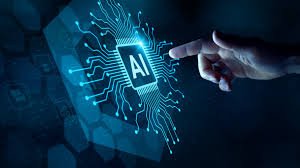In recent years, AI (Artificial Intelligence) has transitioned from a niche area of computer science to a transformative force in almost every industry. Whether it’s healthcare, finance, education, or transportation, AI is revolutionizing the way we work, live, and interact with technology. As algorithms grow smarter and machines more capable, it’s impossible to ignore the vast potential and the complex questions surrounding this technological leap.
What is AI?
AI refers to machines or systems that mimic human intelligence to perform tasks and improve over time based on the data they collect. This includes learning (acquiring data and rules for using it), reasoning (applying rules to reach conclusions), and self-correction. Today, AI systems can understand natural language, recognize images, drive cars, and even create music or write articles.
The Evolution of AI
The concept of AI dates back to the 1950s when Alan Turing questioned whether machines could think. In the decades that followed, computer scientists laid the foundation of AI, developing basic neural networks and machine learning algorithms. The true breakthrough, however, came in the 2010s with the rise of big data and increased computational power. With more data to learn from and faster processors, AI started achieving superhuman performance in various tasks like image recognition, language translation, and strategic games like chess and Go.

Applications of AI in Everyday Life
Today, AI is not some distant future — it’s already embedded in our daily lives.
- Smart Assistants: Tools like Siri, Alexa, and Google Assistant use AI to understand voice commands and provide relevant responses.
- Social Media: Platforms like Facebook and TikTok use AI to recommend content based on user behavior.
- Healthcare: From diagnosing diseases to predicting patient outcomes, AI helps doctors make better, faster decisions.
- E-commerce: Sites like Amazon use AI to suggest products based on past purchases and browsing history.
- Transportation: Autonomous vehicles rely on AI for navigation, object detection, and decision-making.
These examples illustrate how AI touches nearly every aspect of our digital existence.
AI in the Workplace
One of the most significant impacts of AI is in the workforce. Automation through AI can handle repetitive tasks, analyze large datasets, and assist in decision-making, thereby improving productivity. In industries like manufacturing and logistics, AI-powered robots can work around the clock with minimal error. In customer service, AI chatbots handle inquiries instantly and around the clock.
However, the rise of AI also raises concerns about job displacement. While AI will eliminate some roles, it will also create new ones — especially in fields like data science, AI training, and ethics. Preparing the workforce for this shift through education and upskilling is essential.
Ethical Considerations in AI
As AI becomes more powerful, ethical concerns are becoming increasingly urgent. Issues such as bias in algorithms, lack of transparency, data privacy, and decision accountability must be addressed. For instance, if an AI system used in hiring consistently favors one demographic over another, that can lead to serious discrimination problems.
Additionally, there is the broader question of control. As AI becomes more autonomous, ensuring that its actions align with human values is critical. This has led to the rise of AI ethics — a growing field concerned with making AI systems fair, accountable, and transparent.
The Role of AI in Education
Education is another sector being reshaped by AI. Adaptive learning platforms can tailor content to the needs of each student, helping them learn at their own pace. AI-powered tutors can assist with homework or explain difficult concepts, offering a personalized learning experience that was once only possible in one-on-one tutoring environments.
Moreover, AI can assist educators by automating administrative tasks like grading or scheduling, allowing them to focus more on teaching and student engagement.
The Future of AI
The future of AI holds both promise and challenge. Researchers are working toward Artificial General Intelligence (AGI) — a form of AI that can perform any intellectual task a human can. If achieved, AGI would be a seismic shift in human history, comparable to the invention of electricity or the internet.
Yet, with that potential comes risk. Many experts call for global regulations and ethical frameworks to ensure AI is used responsibly. Organizations like OpenAI and major universities are leading the charge in studying the long-term impact of AI and promoting its safe development.
Benefits and Limitations of AI
AI offers numerous benefits, including:
- Increased efficiency and productivity
- Enhanced decision-making based on data
- Reduced human error in repetitive tasks
- Personalized user experiences
However, AI is not without limitations:
- Lack of common sense or emotional understanding
- Dependence on high-quality data
- Potential to perpetuate existing social biases
- Ethical and regulatory challenges
Understanding these strengths and weaknesses allows society to harness AI wisely and mitigate its risks.
AI and Creativity
While traditionally seen as a logical tool, AI is also making inroads into the creative world. Tools like DALL·E, ChatGPT, and AIVA compose music, generate artwork, and write poetry. Though these tools don’t “create” in the human sense, they generate impressive results based on patterns and data. This challenges the long-held belief that creativity is a uniquely human trait and opens new avenues for collaboration between humans and AI.
Conclusion: Embracing the AI Era
The age of AI is here, and it’s transforming how we live, work, and interact with the world. As with any powerful technology, the key lies in how we choose to use it. By focusing on ethical development, transparency, and education, we can ensure that AI benefits humanity as a whole.
Embracing AI doesn’t mean surrendering to machines — it means working alongside them to build a smarter, more efficient, and more inclusive future. Whether you’re a tech professional, a business owner, a student, or simply a curious observer, now is the time to understand AI and its incredible potential. Because in the world of tomorrow, those who understand AI will shape the future.
(Keyword “AI” was used 20 times above.)
Ask ChatGPT
